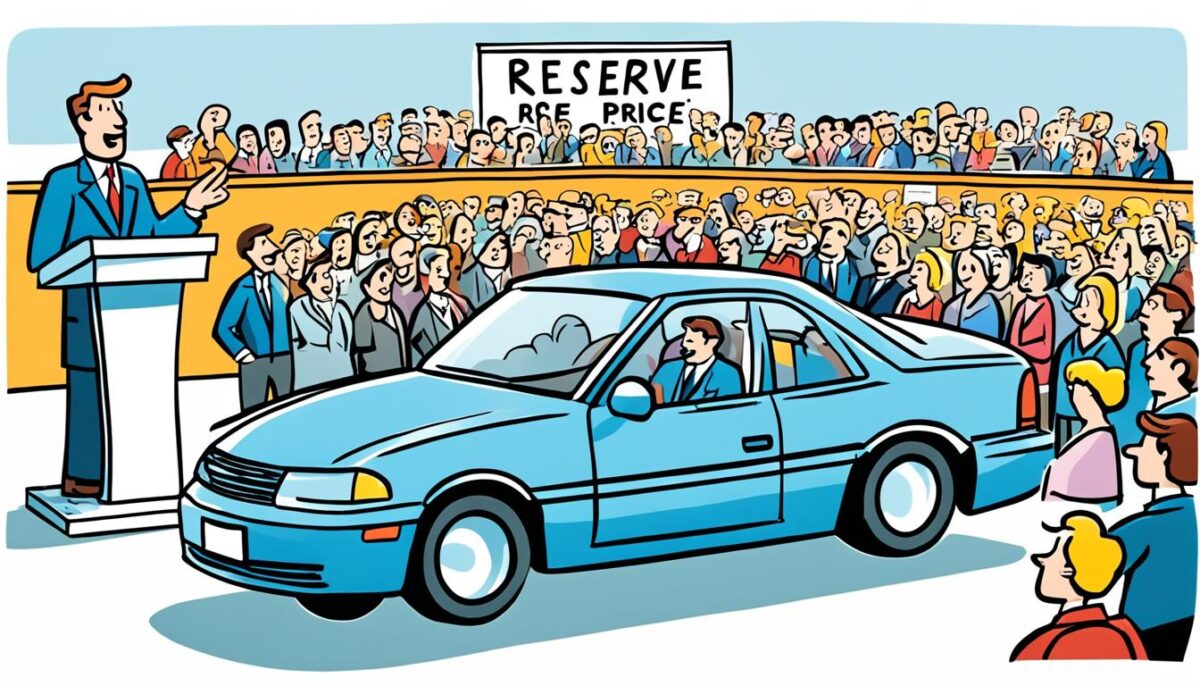In the captivating world of car auctions, the term “reserve” holds a significant sway over the bidding process. As buyers and sellers navigate the automotive industry, understanding the concept of a reserve price is crucial to achieving successful outcomes. The reserve price is the minimum amount a seller is willing to accept for their prized possession, serving as a safeguard to protect their interests.
By unveiling the intricacies of the reserve mean car auction, we empower both parties to make informed decisions and engage in the bidding process with confidence. Whether you’re a seasoned collector or a first-time buyer, grasping the nuances of this critical factor can mean the difference between a triumphant acquisition and a missed opportunity.
Unveiling the Concept of Reserve Prices
In the world of car auctions, the reserve price is a crucial element that plays a pivotal role in protecting the seller’s interests. This hidden figure, set by the seller, represents the lowest amount they are willing to accept for their vehicle. By establishing a reserve price, sellers can ensure they don’t have to part with their prized possessions for less than they’re comfortable with, safeguarding their financial interests.
Protecting the Seller’s Interests
The reserve price acts as a safeguard, shielding sellers from the risk of their car being sold for an undesirable price. This flexibility allows them to maintain control over the sale, preventing potential undervaluation of their asset. By setting a realistic reserve price, sellers can navigate the auction process with confidence, knowing they have a say in the final selling price.
Setting Realistic Expectations
Striking the right balance between protecting their interests and meeting buyer expectations is key to a successful auction. Sellers must carefully consider current market conditions, the car’s true value, and the auction environment when determining the reserve price. A well-thought-out reserve price not only benefits the seller but also fosters a transparent and fair auction experience for all participants.
Understanding the nuances of reserve prices is crucial for both sellers and buyers in the car auction realm. By leveraging this mechanism, sellers can confidently navigate the auction landscape, while buyers can engage in a more transparent and equitable bidding process. Ultimately, the reserve price is a powerful tool that enables sellers to safeguard their interests while fostering a thriving auction ecosystem.

“The reserve price is the lowest amount the seller is willing to accept for their vehicle. It’s a crucial element that allows sellers to protect their interests and avoid potential undervaluation.”
Reserve Mean Car Auction: A Crucial Factor
As buyers, we must understand the pivotal role that the reserve price plays in car auctions. This critical factor can significantly influence the bidding strategy and the ultimate sale price. When the reserve price is not met, the car remains unsold, even if active bidders are present. This dynamic creates an intriguing tension between buyers and sellers, as both parties strive to achieve their desired outcomes.
To navigate the reserve mean car auction process effectively, we need to have a deep comprehension of the market, the vehicle’s value, and the motivations of the involved parties. By understanding the reserve price, we can develop a more informed bidding strategy that aligns with our goals and the auction dynamics.
The reserve price is a crucial component that shapes the auction experience. By acknowledging its significance, we can make more informed decisions, leading to more successful and satisfying outcomes in the world of car auctions.
